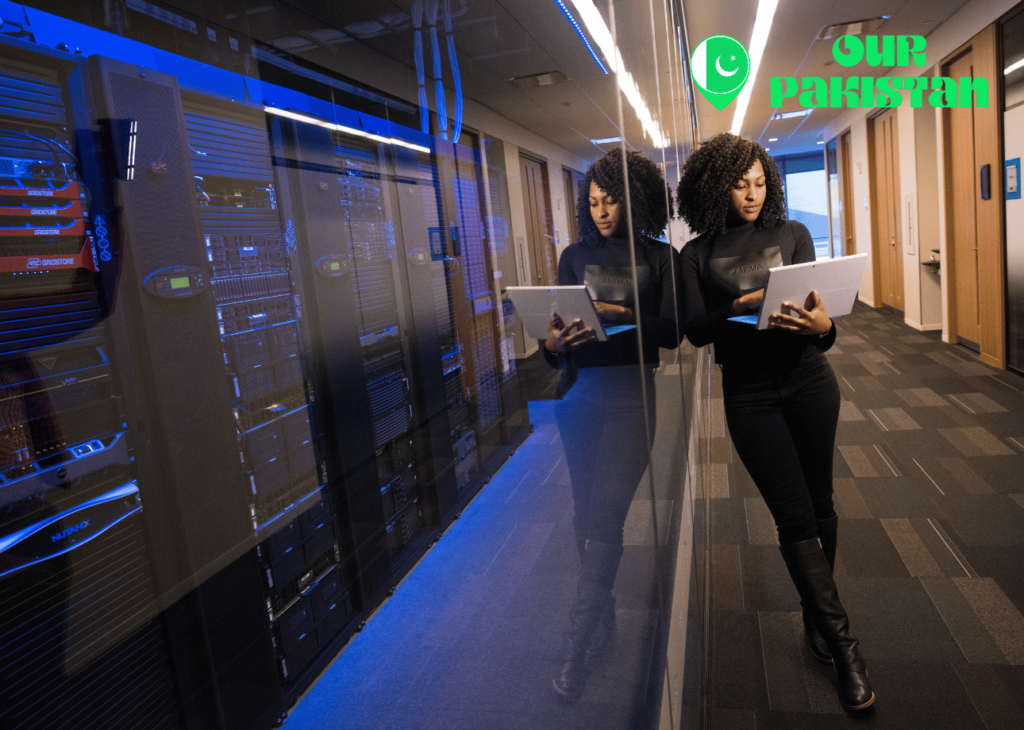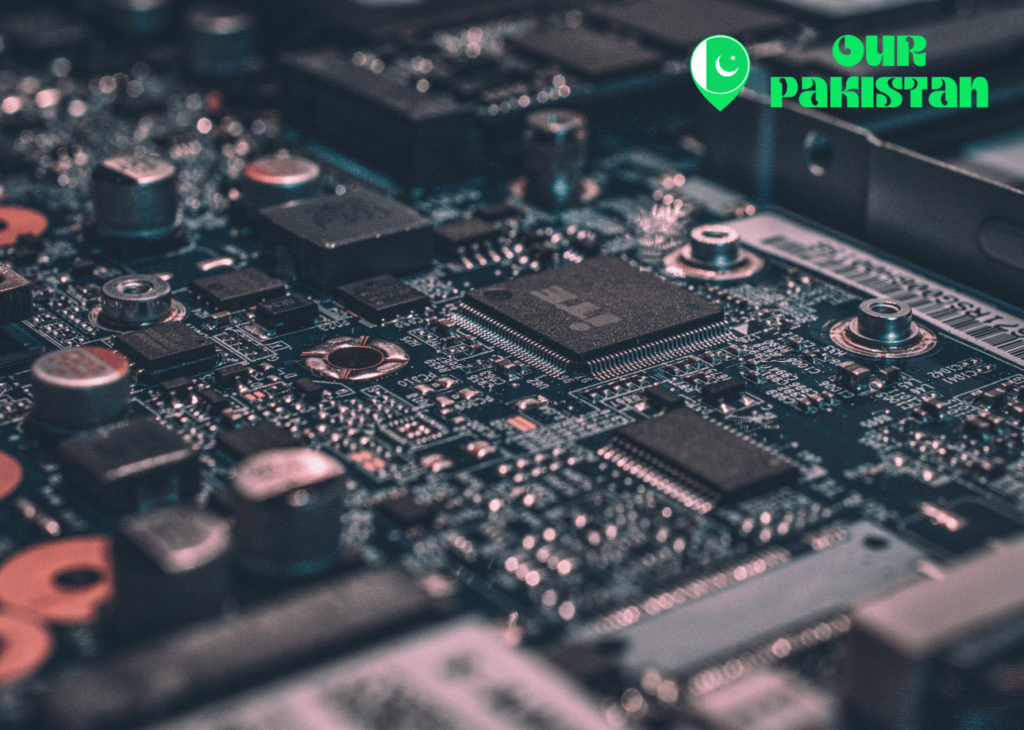Pakistan, a country on the cusp of a technological revolution, is witnessing rapid growth in its tech industry, which is set to shape the nation’s future. With an increasing focus on digital transformation, internet penetration, e-commerce, FinTech, artificial intelligence, startups, 5G technology, e-governance, cybersecurity, EdTech, green technology, and workforce development, Pakistan is positioning itself as a global player in the tech arena. In this article, we will delve into the various tech trends that are reshaping Pakistan’s future and the opportunities they present for economic and social progress.
Digital Transformation
Pakistan’s government, educational institutions, and healthcare are increasingly embracing digital technologies. The government is undertaking initiatives to digitally transform its services, enabling citizens to access them conveniently. Educational institutions are adopting online learning platforms, providing students with enhanced learning opportunities. In the healthcare sector, telemedicine and electronic health records are improving patient care and accessibility.

Digital transformation has revolutionized the way services are delivered in Pakistan. It has streamlined administrative processes, reduced paperwork, and improved data accuracy. This has led to increased efficiency, saving valuable time and resources. Additionally, digital technologies have made services more accessible, particularly to remote areas of the country, bridging the urban-rural divide and empowering marginalized communities.
Internet Penetration and Connectivity
Pakistan has witnessed a remarkable increase in its internet penetration rate. With the advent of affordable smartphones and the availability of affordable data packages, more Pakistanis are gaining access to the internet. This has resulted in a significant rise in internet users, providing them with opportunities to connect, learn, and engage.
The expansion of internet connectivity in Pakistan is fueling economic growth and transforming society. It has opened doors for e-commerce, digital entrepreneurship, and remote work, creating new job opportunities and fostering innovation. Additionally, internet connectivity has improved access to information, allowing citizens to make informed decisions and participate in the digital economy.
E-commerce and Online Marketplaces
The e-commerce industry in Pakistan has experienced exponential growth in recent years. With the rise of online marketplaces and platforms, consumers now have access to a wide range of products and services at their fingertips. E-commerce has not only transformed the retail sector but has also revolutionized the way businesses operate, enabling them to reach a larger audience and cater to their needs efficiently.
Consumer behavior in Pakistan is rapidly evolving, with more individuals opting for the convenience and accessibility provided by e-commerce platforms. The growth of online marketplaces has not only enabled consumers to make instant purchases but has also provided a platform for small and medium-sized enterprises to thrive and expand their reach.
FinTech Innovations
Pakistan’s FinTech sector is experiencing significant advancements, revolutionizing the financial landscape of the country. From digital payment solutions to mobile banking, FinTech innovations have made financial transactions faster, safer, and more convenient. This has paved the way for financial inclusion, enabling individuals from all walks of life to access and utilize financial services.
Digital payment solutions, such as mobile wallets and payment apps, have played a crucial role in financial inclusion. They have provided individuals with the ability to send and receive money, pay bills, and make purchases digitally, bypassing traditional banking systems. This has empowered the unbanked population, facilitating their participation in the formal economy and reducing economic disparities.
Artificial Intelligence and Automation
Artificial intelligence (AI) is making its mark across various industries in Pakistan. In healthcare, AI is being used for disease diagnosis, treatment planning, and medical research. In the finance sector, AI-powered algorithms are improving risk assessment and fraud detection. AI is also driving automation in manufacturing, optimizing production processes, and enhancing productivity.

AI has the potential to drive innovation and transform industries in Pakistan. By harnessing the power of big data and machine learning, AI algorithms can identify patterns, trends, and insights that humans may overlook. This not only improves decision-making but also enhances productivity, leading to economic growth and competitiveness on a global scale.
Startups and Entrepreneurship
Pakistan’s startup ecosystem is witnessing exponential growth, with an increasing number of entrepreneurs and investors recognizing its potential. Startups are emerging in various sectors, including technology, e-commerce, healthcare, and agriculture. This surge in entrepreneurial activities is fostering innovation, job creation, and economic development in the country.
Government initiatives and support for entrepreneurship
The government of Pakistan has introduced several initiatives and policies to promote and support entrepreneurship. These include the establishment of incubation centers, funding programs, and mentorship networks. By providing a conducive environment for startups to flourish, the government is nurturing a culture of innovation and paving the way for long-term economic progress.
5G Technology and Connectivity
Pakistan is gearing up for the advent of 5G technology, which will revolutionize communication and connectivity. 5G promises faster, more reliable internet speeds, low latency, and enhanced bandwidth. This will pave the way for a plethora of exciting possibilities, including the Internet of Things (IoT), smart cities, and advanced robotics.

The adoption of 5G technology in Pakistan presents numerous opportunities across various sectors. It will enable the proliferation of connected devices, enabling seamless communication and data exchange. However, the deployment of 5G also brings challenges such as infrastructure development, network security, and the need for skilled professionals capable of harnessing the potential of this cutting-edge technology.
E-governance and Smart Cities
Pakistan has made significant strides in e-governance and the digitization of government services. From online tax filing systems to digital citizen portals, e-governance initiatives have streamlined bureaucratic processes and improved service delivery. This has resulted in increased transparency, reduced corruption, and enhanced citizen engagement.
Pakistan’s smart city projects aim to leverage technology to create sustainable, efficient, and livable urban environments. By integrating IoT, renewable energy solutions, and smart infrastructure, these projects promote resource optimization, traffic management, and environmental sustainability. Smart cities have the potential to enhance the quality of life for citizens, making cities more resilient, environmentally friendly, and technologically advanced.
Cybersecurity and Data Privacy
With the increasing reliance on technology, cybersecurity has become a critical concern in Pakistan. As digital systems become more interconnected, the risk of cyber threats and data breaches rises. Establishing robust cybersecurity measures and raising awareness about the importance of data protection is crucial to safeguard sensitive information and maintain public trust.
Ensuring data privacy has become imperative in today’s digital landscape. Pakistan is taking steps to reinforce data protection laws and implement measures to safeguard user privacy. By enacting stringent regulations and encouraging organizations to adopt best practices in data handling, Pakistan aims to create a secure digital ecosystem that protects the rights and information of its citizens.
EdTech and Remote Learning
EdTech has emerged as a game-changer in the field of education in Pakistan. Online learning platforms, video lectures, and interactive educational tools are revolutionizing the way students learn and educators teach. EdTech has the potential to bridge educational gaps, increase access to quality education, and nurture a skilled workforce for the future.
Advantages and challenges of remote learning
Remote learning offers numerous advantages, including flexibility, personalized learning experiences, and access to a diverse range of resources. However, challenges such as the digital divide, lack of infrastructure, and the need for teacher training need to be addressed to ensure equitable access to education for all students, regardless of their geographical location or socioeconomic background.
Green Technology and Sustainability
Pakistan recognizes the importance of sustainable technology solutions in addressing environmental challenges. Efforts are underway to promote the development and adoption of green technologies, such as renewable energy and energy-efficient systems. These initiatives aim to reduce carbon emissions, promote resource conservation, and create a greener future for Pakistan.
Promoting green technology for a greener future
By incentivizing green technology development and creating an enabling environment for sustainable practices, Pakistan is taking significant strides towards a greener future. The promotion of clean energy sources, waste management systems, and eco-friendly policies can lead to a more sustainable and resilient Pakistan, mitigating the adverse effects of climate change and ensuring a better quality of life for its citizens.
Tech Skills and Workforce Development
As Pakistan embraces technology, there is an increasing demand for skilled tech professionals. The country needs individuals proficient in areas such as software development, data analysis, cybersecurity, and digital marketing. By nurturing a talent pool skilled in emerging technologies, Pakistan can meet the demands of a rapidly evolving tech ecosystem and compete globally.
To bridge the tech skills gap, various initiatives are being undertaken to promote workforce development and upskilling in Pakistan. Collaborations between academia, private sector organizations, and government bodies are facilitating training programs, boot camps, and scholarships. By empowering individuals with the necessary skills, Pakistan can unlock the full potential of its tech industry and drive economic growth.
Future Outlook and Opportunities
The future of technology in Pakistan looks promising, with immense potential for growth and innovation. As the country continues to invest in its tech ecosystem, we can expect advancements in areas such as AI, cybersecurity, e-government services, and green technology. The tech industry is poised to create more employment opportunities, attract investments, and position Pakistan as a hub of technological excellence in the region.
By harnessing these tech trends, Pakistan can lay the foundation for economic and social progress. Efforts to enhance digital transformation, connectivity, entrepreneurship, and workforce development will contribute to creating an inclusive, prosperous, and sustainable future for Pakistan. Embracing innovation and adopting a proactive approach to emerging technologies will be crucial in shaping the nation’s future.
Conclusion
Technology holds transformative power in shaping Pakistan’s future. The ongoing digital revolution, combined with the government’s commitment to technological advancements, is opening doors to unprecedented opportunities for economic growth, social inclusion, and sustainable development. Embracing innovation and adopting a forward-thinking mindset are critical for Pakistan to successfully navigate the ever-evolving tech landscape and pave the way for a prosperous future.